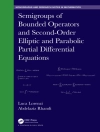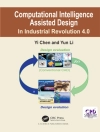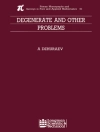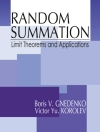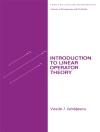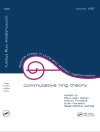This book presents the XXII Congress of APDIO – IO 2022 which is the 22nd edition of the regular meeting of the Portuguese Association of Operational Research (APDIO). The APDIO regular meetings aim to gather Portuguese and international researchers, scholars and practitioners, as well as M.Sc. and Ph.D. students, working in the field of Operations Research to present and discuss their latest research works. The main theme of the XXII Congress of APDIO is OR in Turbulent Times: Adaptation and Resilience.
Readers find interesting results and applications of Operational Research cutting-edge methods and techniques in the wide variety of the addressed problems. Of particular interest are the applications of, among others, linear, nonlinear and mixed-integer programing, multiobjective optimization, metaheuristics and hybrid heuristics, multicriteria decision analysis, data envelopment analysis, simulation, clustering techniques and decision support systems, in different areas suchas, supply chain management, scheduling problems, production management, logistics, energy, telecommunications, finance and health.
İçerik tablosu
M. J. Alves, C. H. Antunes, and I. Soares, A study of a state-of-the-art algorithm for mixed-integer linear bilevel optimization.- C. Pinto, G. Figueira, and P. Amorim, Using supplier networks to handle returns in online marketplaces.- A. S. Carvalho and M.E. Captivo, The multiple ambulance type dispatching and relocation problem: optimization approaches.- H. Ponte, H. Rocha, and J. Dias, Automated Radiotherapy Treatment Planning Optimization: A Comparison Between Robust Optimization and Adaptive Planning.- J. Dion´ısio, and J. P. Pedroso, An optimization model for power transformer maintenance.- E. Eloy, V. Bushenkov, and S. Abreu, Multi-objective Finite-Domain Constraint-based Forest Management.- M. T. Godinho and M. Pascoal, Implementation of geographic diversity in resilient telecommunication networks.- M. I. Gomes, Ana C. Jóia, J. Pinela, and N. Chibeles-Martins, Are the Portuguese Fire Departments well located for fighting urban fires?.- C. Lopes, A. Maria Rodrigues, E. Ozturk, J. S. Ferreira, A. C. Nunes, P. Rocha, and C. Teles Oliveira, Parcel Delivery Services: a Sectorization Approach with Simulation.- J. F. Ferreira and R. B. Lopes, Decision Support System for Scheduling the Production of Screw Caps in a Flexible Job-Shop Environment.- D. Bandeira1 and M. Pascoa, Bimaterial three-dimensional printing using Digital Light Processing projectors.- M. Batista, J. P. Ribeiro, and A. Barbosa-P´ovoa, Supply Chain Resilience: Tactical-Operational Models, a Literature Review.- J. Sequeiros, F. R. Ramos, M. T. Pereira, M. Oliveira, and L. Rubio, Applying Deep Learning Techniques to Forecast Purchases in the Portuguese National Health Service.- L. P. Gomes, A. Vieira, R. Fragoso, D. Almeida, L. Coelho, J. M. Neves, A Three-Level Decision Support Approach Based on Multi-Objective Simulation-Optimization and DEA: A Supply Chain Application.- C. Santos, A. R. Xambre, A. Hall, H. Alvelos, S. Marques, I. Martins and F. Alvelos, Modelling Forest Fire Spread Through Discrete Event Simulation.- L. Yamada, P. Rampazzo, F. Yamada, L. Guimar˜aes, A. Leit˜ao, and F. Barbosa, Multiobjective Evolutionary Clustering to enhance fault detection in a PV system.


